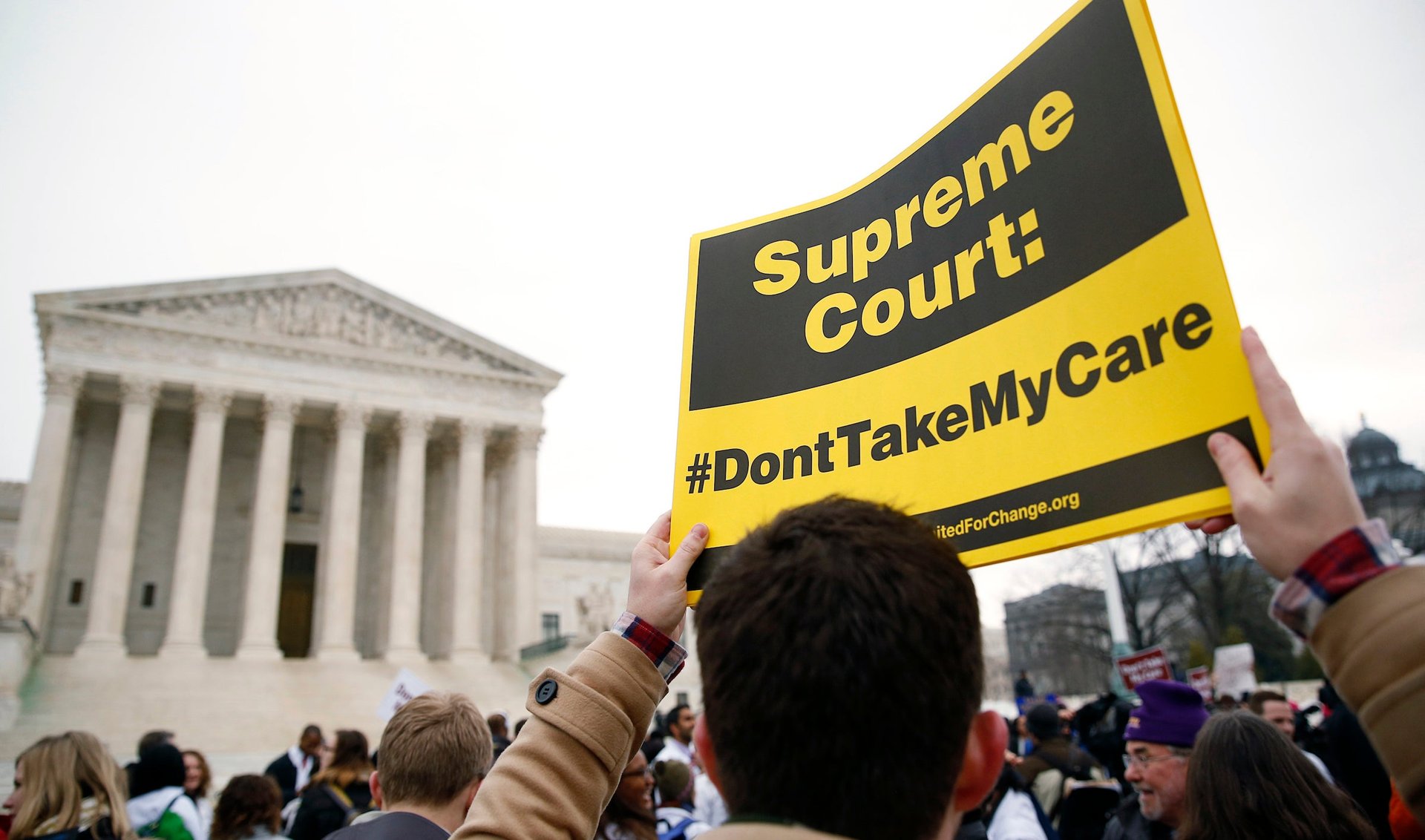Why America’s biggest health insurers are suddenly devouring each other
Less than a month after Aetna announced an agreement to buy Humana for $37 billion, we’re getting another health insurance mega-merger: Anthem is reportedly set to close on a $48 billion deal to buy Cigna.


Less than a month after Aetna announced an agreement to buy Humana for $37 billion, we’re getting another health insurance mega-merger: Anthem is reportedly set to close on a $48 billion deal to buy Cigna.
Should the deals get past regulators, the US will go from five major national insurers to three. Each of the three would have more than $100 billion in revenue, if last year’s figures hold, and cover tens of millions of Americans.
Regulatory approval is no slam dunk. Since the mergers are so huge, there are antitrust concerns (paywall) and the mergers will be looked at together rather than individually to evaluate their potential effect.
The impact on consumers? Uncertain. Customers in some states will have a lot less choice (paywall) and could see rates rise, particularly in the markets for individual coverage. The insurers say these deals will let them become more efficient, negotiate more effectively, and ultimately lower rates.
If the idea that prices may go up—or possibly down—and that that may depend on geography and employment status seems confusing, that’s because it is. These deals represent a window into the complexities of the deeply fragmented US health care industry.
So, what prompted nearly $100 billion worth of mergers in just a few short weeks?
Obamacare
This is the big one. It’s no coincidence that these mergers happened in short order after the Supreme Court upheld the law for the second time. That the law has helped spur merger fever would appear to be unintentional since it was meant to drive more competition.
So why is Obamacare motivating these tie-ups? First, the law brought millions of people into the individual insurance market for the first time. The uninsured rate is already down to its lowest point ever. Insurers are battling for those new customers, and these mergers give them greater scale to do so.
Second, the law has pressured insurers to cut costs and get more efficient. The ACA requires insurers to spend a certain percentage of premiums on health care, meaning that driving down administrative costs is a huge priority.
Size matters, and everyone else is doing it!
The Affordable Care Act has also led to a huge amount of consolidation among health care providers. Doctors and hospitals are forming increasingly huge networks (pdf), as the law pushes hospitals to lower costs and moves them to payouts based on outcome rather than volume. These big networks are positioned to be far tougher negotiators with insurers.
In order to counter that, insurers want a larger and broader member base to give them more leverage.
There’s also a fear of missing out. Health insurance mergers tend to happen in waves, and it seems like all five major insurers were linked in one way or another over the past couple of months. Once one merger happened, another was pretty much inevitable.
Then there’s a drive to diversification. Given how much health care has been changing, it’s risky to depend too much on any one business or geography. These mergers are meant to give the insurers access to new markets and products.
For example, Anthem runs Blue Cross programs in 14 states, and buying Cigna would make it an employer-oriented juggernaut. Aetna’s deal with Humana would hugely expand its presence in the private Medicare Advantage market as the population of older Americans keeps growing, and give it a military insurance presence.
United Health, the one big national insurer not engaging in this round of M&A (though it kicked Aetna’s tires), bought Catamaran earlier this year, boosting its pharmacy benefit business.
The fight for individual buyers
There’s been a huge shift in the way insurance is bought and sold in the past few years. In the past, the vast majority of insurance was sold to groups of people, often through employers.
Now insurers spend more time appealing to individuals, either through public exchanges, private exchanges for employees, or though privately administered Medicare and Medicaid plans. So instead of negotiations for big groups of people, insurers have compete in a more fragmented and price sensitive marketplace. They’re betting bigger networks and better service will help them win there.